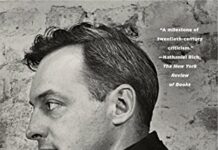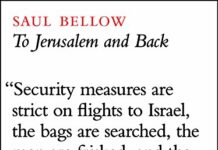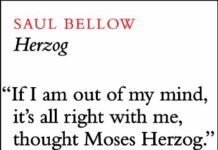
Ebook Info
- Published: 2006
- Number of pages: 156 pages
- Format: PDF
- File Size: 0.37 MB
- Authors: Saul Bellow
Description
An essential masterwork by Nobel laureate Saul Bellow—now with an introduction by J. M. CoetzeeA Penguin Classic Expecting to be inducted into the army to fight in World War II, Joseph has given up his job and carefully prepared for his departure to the battlefront. When a series of mix-ups delays his induction, he finds himself facing a year of idleness. Saul Bellow’s first novel documents Joseph’s psychological reaction to his inactivity while war rages around him and his uneasy insights into the nature of freedom and choice. For more than seventy years, Penguin has been the leading publisher of classic literature in the English-speaking world. With more than 1,700 titles, Penguin Classics represents a global bookshelf of the best works throughout history and across genres and disciplines. Readers trust the series to provide authoritative texts enhanced by introductions and notes by distinguished scholars and contemporary authors, as well as up-to-date translations by award-winning translators.
User’s Reviews
Reviews from Amazon users which were colected at the time this book was published on the website:
⭐So?
⭐”There was a time when people were in the habit of addressing themselves frequently and felt no shame at making a record of their inward transactions.” So begins Bellow’s first novel and one of the most consistently excellent oeuvres in American fiction. It’s Chicago, 1942, and in preparation for his imminent draft into the army, Joseph has given up his job and moved himself and his wife into one-room lodgings in a boarding house. That was nine months ago and the draft letter hasn’t come. Joseph is dangling – alienated, without real purpose, but no longer distracted by the banal minutiae of everyday working life. He begins to see the absurdity of social roles, the hypocrisy of long-held ideologies, and the horror of life without routine. Breaking from friends and family, Joseph observes the slow disintegration of his social self. Significantly, while unthinking discipline is offered as one way out of such a nightmare, we’re not encouraged to see this as the only or best solution. Bellow never comes down on one side or the other. This announces one of the central themes of Bellow’s work generally: that there is a big difference between thinking and having an idea. Thinking involves a free opposition of ideas, and it raises the work from the level of a tract to the level of art. The opposites are free to range themselves against each other, and they are passionately expressed on both sides. At its best, it is energetic, passionate, and open. An idea, in contrast, is a state of closure which kills truth because it denies the multivalence of experience. According to Bellow, thinking is vital to a novel. The continuing dilemma which concludes most of his narratives may well be aimed at this effect. Thinking is still in progress – hopefully in your head. “Dangling Man” achieves this: Bellow doesn’t tell us what to think, he invites us to think for ourselves. This novel is also notable for its bold project of bringing a European form – the sophisticated, introverted, philosophical diary novel – into the American mainstream as a deliberate antidote to hardboiled-dom, both in fiction and in life. Bellow adheres closely to its formal requirements: like his European forbears, Joseph is an alienated, bookish, unemployed part-time flaneur, part-time room hermit, whose impotence and hermetic isolation are underscored. Yet he has an unmistakable touch of America about him, which makes him all the more accessible for readers in the English-American tradition. Bellow puts American life under a European microscope, and finds the central issue much the same: the problem of being human.
⭐Saul Bellow’s short and first published novel “Dangling Man” (1944) explores broad themes of community and alienation in the words of a self-centered young man awaiting induction into the Army in 1942-43 during WW II. The book sold poorly but it established Bellow as a writer of promise. The story is set in Chicago and is told exclusively by means of diary entries of the protagonist, who is identified only as Joseph, between December 15, 1942, and April 9. 1943. As befitting diary entries, most of the book is recounted in the first person. But in several places, Joseph tries to study and describe himself and speaks of his life in the third person. In diary entries late in the story, Joseph holds lengthy philosophical discussions with an alter-ego.Joseph is 27 years old and a Canadian citizen. As the book opens, issues of citizenship have delayed Joseph’s induction into the Army for seven months, during which he becomes the “dangling man” belonging neither to civilian nor military life. During this time, Joseph leaves his job working for a travel bureau. He is supported by his long-suffering wife of five years, Iva. He becomes increasingly resentful of his dependency on his wife. With their economically marginal situation, Joseph and Iva have given up their modest but reasonably comfortable flat for a squalid rooming house. Joseph expresses his disgust throughout the book for his landlord and landlady and many of the cotenants.As his diary entries reveal, Joseph had tried before he saw himself as the dangling man (which in fact had been his situation throughout his life) to create a balance between his work and his interests which are largely intellectual and scholarly. For a brief time, Joseph had been a communist. He left the party and his former comrades shun him. He tries to think through the nature of American society and its relationship to individualism. When Joseph loses his job, Iva encourages him to read and to pursue his writings on the Enlightenment and on Romanticism. But with his restlessness and his new-found if precarious liberty, Joseph is unable to do so. He sits for long hours in his room unable to do anything, takes short walks for meals, has an affair, fights with his family and former friends, and he broods.In one of several scenes of fighting in the book, Joseph and Iva visit his brother Amos, his wife Dolly, and daughter Etta for New Years. Amos has made a financial success of his life and presses Joseph to accept financial help which he proudly refuses. During the catastrophic New Years dinner, Joseph refuses his brother’s offer of a holiday gift of cash. More tellingly, Joseph finds himself in a highly-compromising, sexually charged situation with his brother’s daughter. Other fights with former friends and colleagues occur througout the book as part of Joseph’s inability to decide what to do with himself.Joseph wants to accept and function in American society and not to pursue the criticism and rejection which was common among intellectuals then and remains so today. He supports, however tentatively, the war effort and tries to make his peace with capitalism and materialism. These efforts are unsuccessful as Joseph cannot avoid his stance as an alienated outsider. Joseph finds he cannot make use of the freedom with uncertainty that has been offered to him as the draft board finally resolves Joseph’s status. At the end of the book, Joseph is about to be inducted, facing an uncertain future with his wife and family, and the induction comes as a relief to him from his own purposelessness.Although set in Chicago, Bellow’s novel is heavily influenced by the themes of European philosophy and existentialism. Dostoevsky’s anti-hero in “Notes from the Underground” is a predecessor of Joseph. Joseph is also preoccupied with the writings of Goethe as an attempted counter-balance to his own situation.As in much of Bellow’s later writing, “Dangling Man” juxtaposes scenes of American toughness and street life with long passages of philosophical reflection. The themes of alienation and liberty presented in this book cut deeper than the specific situation that confronts Joseph. As a narrator, Joseph is solipsistic and narcicistic. He also dislikes women. A disturbing tone of subtle racism underlies the book. Although short, the book drones on at times and lacks the sparkle of Bellow’s later writing. Still, “Dangling Man” is a thoughtful and ambitious novel that captures something important about freedom and the American dilema.Robin Friedman
⭐Bought as a present requested by my son
⭐Excellent!
⭐Great book, by Saul Bellow, condition not so good. Looked old, as if kept for long in a shelf forgotten.
⭐This was a very interesting read and the book arrived in perfect condition and on time. I would purchase again from this vendor.
⭐Es geht um einen Mann, der für ein gutes Jahr in der Schwerelosigkeit lebt, zwischen den Welten, im luftleeren Raum, im Nirwana sozusagen. Er ist Collegeabsolvent, hat seinen Job in einem Reisebüro gekündigt und wartet jetzt auf die Einberufung in die Armee (1941). Da seine Nationalität nicht eindeutig geklärt ist (er ist eigentlich Kanadier), verzögert sich die Einberufung immer wieder. Er weiß das und er will das auch so. Er genießt es, herausgenommen zu sein aus dem täglichen Leben, der konventionellen Karriere, dem üblichen Lebenslauf, den täglichen Zwängen.Er hat jetzt die totale Freiheit, macht nichts, “hängt herum” und lebt einfach ohne jede Aktivität in den Tag hinein. Den Lebensunterhalt verdient seine Ehefrau. Sie wohnen erbärmlich in einer winzigen möblierten Wohnung mit anderen Mietern zusammen.Sein Tag besteht aus dem späten Aufstehen, Zeitung gelesen, ab und zu werden kleine Spaziergänge unternommen. Und natürlich nimmt er sein Frühstück, seinen Lunch und sein Dinner außer Haus in irgendwelchen kleinen Lokalitäten zu sich. Das Ganze spielt sich in Chicago ab.Er genießt diesen Zustand. Er will diese totale Freiheit erproben. Freunde bieten ihm bis zur Einberufung Arbeit an, er lehnt dies jedoch immer wieder hartnäckig ab. Er möchte einfach die absolute Freiheit und Unabhängigkeit ausleben. An Handlung geschieht wenig, gesprochen wird viel. Er erörtert seine Gedanken mit zum Teil fiktiven Personen, zum Teil mit irgendwelchen Bekannten. Diese Gespräche sind teilweise sehr tiefgehend, hochphilosophisch. Grundfragen des Seins werden besprochen. Es ist ein Genuss, diesen Gedanken zu folgen. Auf der anderen Seite zerinnt vieles im Banalen. Die Ehefrau spielt eine seltsam passive Nebenrolle und ist eigentlich nicht einbezogen in seine Gedankenwelt.Die Welten zwischen denen er schwebt werden vorgeführt. Auf der einen Seite das absolut konservative, nach Erfolg und Wohlstand strebende bürgerliche Leben, welches er u.a. in der eigenen Familie und der seiner Frau bei Einladungen immer wieder vorgelebt bekommt. Dies lehnt der inzwischen absolut und konsequent ab, er gibt diese Kontakte zuletzt auf. Auf der anderen Seite steht der zu erwartende Militärdienst .Er scheitert jedoch an dieser absoluten Freiheit. Er kann mit diesem Leben schließlich nichts anfangen. In seinem Umfeld ist er immer isolierter, Konflikte nehmen zu, er ist mit sich selbst nicht mehr im Reinen. Er erträgt die Freiheit nicht, sie richtet ihn zu Grunde. Er weiß zwar, dass das “innere Leben”, die Gedanken, die “geistige Welt in uns” das Wichtigste überhaupt sind. Er erkennt jedoch schmerzlich, dass dieses Leben in absoluter Einsamkeit, ohne jede Bindung, zwar mit allen Freiheiten, jedoch ohne soziale Kontakte und ohne Liebe für ihn und wohl auch für den Menschen überhaupt nicht erträglich ist. Seine Idee ist gescheitert.Er entschließt sich ganz kurzfristig zum sofortigen Kriegsdienst in der Armee. Innerhalb von einer Woche wird er eingezogen zum Militärdienst. Er schreit förmlich nach engen Plänen, die andere für ihn aufstellen. Er möchte eingekerkert sein in Zwänge. Er möchte, dass andere für ihn bestimmen, was er zu tun hat.Der Abschied von seinem so genannten völlig freien Leben und auch der Abschied von seinem früheren etablierten Leben, sowie von seiner Ehefrau ist eigentümlich lau und leer.Seine Worte zum Schluss beim Einzug in die Armee:”I am in other hands, relieved of self-determination, freedom canceled.Hurray for regular hours! And for supervision of the spirit!Long live regimentation!”Gelesen wurde die Originalversion auf Kindle.
⭐
Keywords
Free Download Dangling Man (Penguin Classics) in PDF format
Dangling Man (Penguin Classics) PDF Free Download
Download Dangling Man (Penguin Classics) 2006 PDF Free
Dangling Man (Penguin Classics) 2006 PDF Free Download
Download Dangling Man (Penguin Classics) PDF
Free Download Ebook Dangling Man (Penguin Classics)



